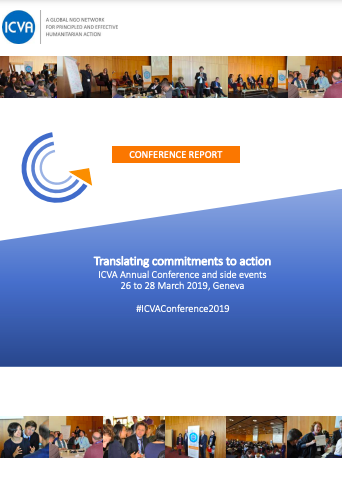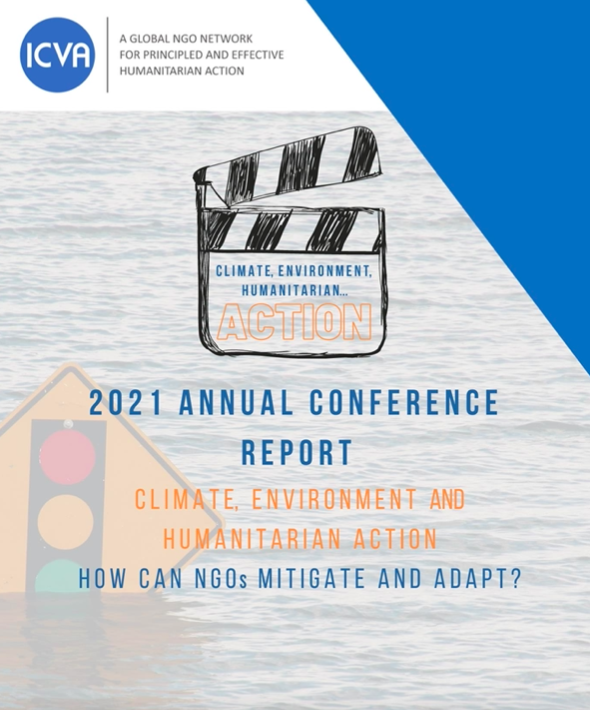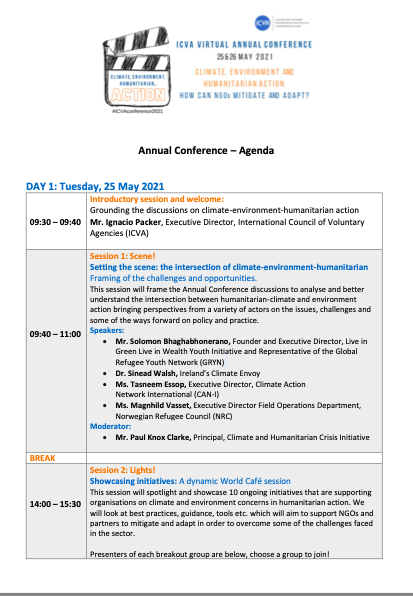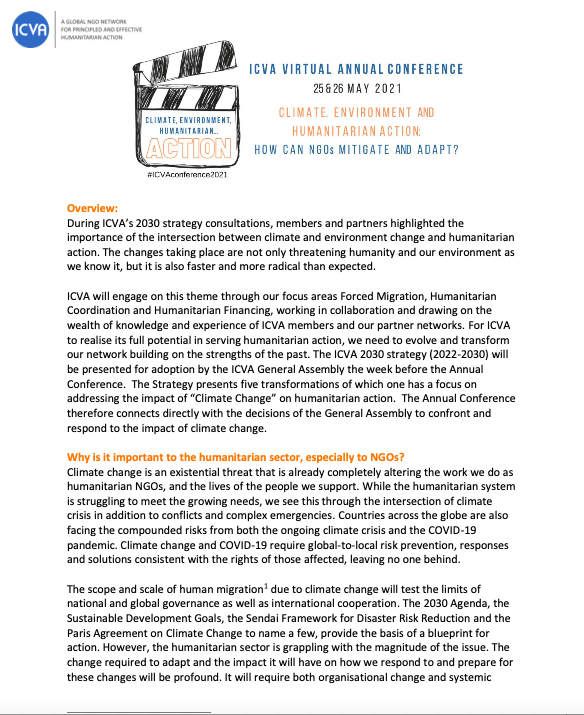-
Search -
Accessibility -
Members Login
Climate, environment and humanitarian action: How can NGOs mitigate and adapt?
Conference
English, French, Arabic, Spanish
ICVA


ICVA’s 2021 Annual Conference focused on the role that NGOs play in adapting the way we work to be better prepared to climate and environment change so that we leave no one behind. Especially in the humanitarian context when delivering programmes to support refugees, displaced and vulnerable populations.
Each year, ICVA holds an Annual Conference, which provides an important opportunity for members to connect and discuss issues relevant to the humanitarian sector, as informed by ICVA’s membership base. On 25 and 26 May 2021 ICVA hosted its second virtual annual conference on the theme: Climate, environment and humanitarian action: How can NGOs mitigate and adapt?
During ICVA’s 2030 strategy consultations, members and partners highlighted the importance of the intersection between climate and environment change and humanitarian action. The changes taking place are not only threatening humanity and our environment as we know it, but it is also faster and more radical than expected.
The conference brought together ICVA members, NGOs, NGO fora, States, donors, UN agencies, experts and other climate and environment sector stakeholders to share their experiences, lessons learned, challenges and ways forward around these issues.
New alliances will be required to work outside existing silos and we will creatively explore how the humanitarian, development and climate communities can work together to shape policy, increase resilience, improve practice, and secure resourcing for climate related humanitarian crises and organisational changes.
The conference aimed to:



This session framed the Annual Conference discussions to analyse and better understand the intersection between humanitarian-climate and environment action bringing perspectives from a variety of actors on the issues, challenges and some of the ways forward on policy and practice.
Moderator:
Speakers:
This session spotlighted and showcased 10 ongoing initiatives that are supporting organisations on climate and environment concerns in humanitarian action. Each session looked at best practices, guidance, tools etc. to support NGOs and partners to mitigate and adapt in order to overcome some of the challenges faced in the sector.
This session focused on the localization and funding linkages when working in climate-environment-humanitarian contexts. There were discussion around what action and change is required from NGOs, donors and partners alike to share risks to mitigate and adapt the way we work.
Keynote address: Mr. Jagan Chapagain, Secretary General, International Federation of the Red Cross and Red Crescent Societies (IFRC)
Speakers:
Moderator: Ms. Stephanie Yousef, MENA Deputy Regional Representative, ICVA
This session looked at how different sectors could work together to mobilise collective and collaborative action addressing the impact of climate and environment change on humanitarian action.
Moderator: Mr. Ignacio Packer, Executive Director, ICVA
Speakers: